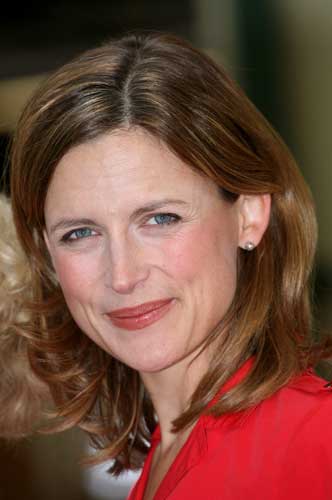Passed/Failed: An education in the life of Katie Derham, news presenter
'I was a pioneer at Cambridge'

Katie Derham, 38, presents the ITV1 lunchtime news and 'London Tonight'. She also presents Classic FM's 'Hall of Fame' concert series on Saturday afternoons. Her 'Traveller's Tree' show returns to Radio 4 on 20 April.
At Offley Infants in Sandbach, Cheshire, I remember that my cat project got a very poor mark from Mrs Bennion for my colouring in – but I have just had a nice letter from her.
I played the piano from the age of five and the violin from the age of eight. I was no child prodigy but I enjoyed music. I've had the pleasure of interviewing classical musicians for Classic FM and I realise that I was never going to sit down and play for six or seven hours a day. When I took part in the BBC's Maestro TV show as a conductor, it reminded me how much joy there is in taking part in musical performances.
Cheadle Hulme School is a private, mixed school. It had three orchestras, two wind bands and three or four choirs. I was there from the age of eight to 18, with a short sabbatical when I was 16 and our family went to Mexico for seven or eight months and I went to Greengates, the international school in Mexico City, for two terms. Cheadle Hulme was very supportive and sent two copies of every textbook, one for me and one for the teachers. We did the International Baccalaureate; we finished school at 2pm and then I would stay behind for extra tuition for A-level history and economics. My mother is a teacher and taught me for A-level French.
It was a completely different environment, a Third World country. It was great when I returned to the UK for my interview at Cambridge; God, did I have something to talk about! I missed the open days, so I took myself to Cambridge for the interviews. I was warmly welcomed by an economics don at Magdalene. Magdalene was the last college to go mixed and this was to be the first year of girls. I found out later that this charming chap had resigned his tutorship in outrage (but was still an economics don). I had to get two As and a B and a "step" paper you could be asked to do if you got a conditional place.
We felt like pioneers. It was the late 20th century and some of the senior members and the porters took a little bit of educating. People came over from other colleges, knocked on my door and said: "We've come to see a Magdalene girl." I said: "What do you want me to do – juggle or something?"
It was a sporting college and you felt you had to field a team. There were only 36 of us women in the first year, so everybody could be captain of something. I'm not the most sporty person but I was captain of the women's six-a-side cricket team. I was in five "cuppers" (inter-college competition) teams; you just had to turn up.
There was no question that the economics faculty had some very good lecturers, such as Professor Eatwell, now a Labour peer. It was big on the statistics and maths side, not my strong point. I got feedback that I was too journalistic in my approach. In my third year, I specialised in the current affairs side of economics. I did my dissertation on "anti-inflationary policy in Brazil".
I wasn't the most conscientious of students. I got involved in a lot of drama and music. I was in The Gondoliers at the Arts Theatre and performed in Cambridge University Light Entertainment Society. I played in the second university orchestra and did a bit for Varsity (the student newspaper).
I got a middle-of-the-road 2:2. I remember applying unsuccessfully for the BBC traineeship scheme. I thought that people who worked in television and newspapers were different from me: in their mid-twenties and having seen the world.
Join our commenting forum
Join thought-provoking conversations, follow other Independent readers and see their replies
Comments
Bookmark popover
Removed from bookmarks